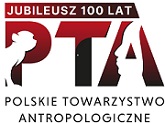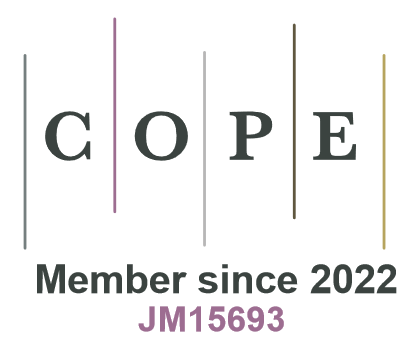Use of upper arm anthropometry, upper arm muscle area-by-height (UAMAH) and midupper- arm-circumference (MUAC)-for-height as indicators of body composition and nutritional status among children
DOI:
https://doi.org/10.1515/anre-2017-0004Keywords:
anthropometry, upper arm composition, undernutrition, upper arm muscle area-for-height, mid-upper arm circumference-for-height, body compositionAbstract
Upper arm anthropometry has a potential role to provide useful estimations of body composition and nutritional status. Aims of the present cross-sectional study were to assess body composition and nutritional status of rural school-going children using upper arm anthropometric measures such as upper arm muscle area-by-height (UAMAH) and mid-upper arm circumference (MUAC) for-height. The present cross-sectional study was conducted among 1281 children of West Bengal, India (boys 619, girls 662) aged 5-12 years and selected using a stratified random sampling method. Anthropometric measurements of height, weight, MUAC and triceps skinfold (TSF) were recorded. Body composition and nutritional status were assessed using upper arm muscle area (UMA), upper arm fat area (UFA), UAMAH and MUAC-forheight. Age-sex-specific overall adiposity in TSF, UFA, arm fat index and upper-arm fat area estimates were higher among girls than boys (p<0.01), but UMA and upper-arm muscle area estimates were observed to be higher among boys than girls (p<0.05). High prevalence of undernutrition was found among both boys (53.15%) and girls (41.69%) using UAMAH (p<0.01). The overall prevalence of low MUAC-forheight was higher among boys (28.59%) than girls (25.68%) (p>0.05). Upper arm anthropometric measures, UAMAH and MUAC-for-height are useful for assessment of body composition and nutritional status among children.
Downloads
References
Anderson MA. 1975. Use of height-arm circumference measurement for nutritional selectivity in Sri Lanka school feeding. Am J Clin Nutr 28:775–81.
View in Google Scholar
Basu D, Sun D, Banerjee I, Singh M, Kalita JG, Rao VR. 2010. Cross-sectional reference values of upper arm anthropometry of the Khasi tribal adolescents of Meghalaya, India. Asia Pac J Clin Nutr 19:283–8.
View in Google Scholar
Bolzan A, Guimarey L, Frisancho AR. 1999. Study of growth in rural school children from Buenos Aires, Argentina using upper arm muscle area by height and other anthropometric dimensions of body composition. Ann Hum Biol 26:185–93.
View in Google Scholar
Chowdhury SD, Chakraborti T, Ghosh T. 2007. Fat patterning of Santhal children: a tribal population of West Bengal, India. J Trop Pediatr 53:98–102.
View in Google Scholar
Chowdhury SD, Ghosh T. 2009. The upper arm muscle and fat area of Santal children: an evaluation of nutritional status. Acta Paediatr 98:103–6.
View in Google Scholar
Çiçek B, Öztürk A, Mazıcıoğlu M, Kurtoğlu S. 2014. Arm anthropometry indices in Turkish children and adolescents: Changes over a Three-Year Period. J Clin Res Pediatr Endocrinol 6:216–26.
View in Google Scholar
Cicek B, Ozturk A, Mazicioglu MM, Elmali F, Turp N, Kurtoglu S. 2009. The risk analysis of arm fat area in Turkish children and adolescents. Ann Hum Biol 36:28–37.
View in Google Scholar
de Onis M, Yip R, Mei Z. 1997. The development of MUAC-for-age reference data recommended by a WHO Expert Committee. Bull World Health Organ 75:11–8.
View in Google Scholar
Erfan M, EL Ruby M, Monir Z and Anwar Z. 2003. Upper arm muscle area by height: an indicator for growth and nutritional status of Egyptian children and adolescents. Egypt Med J 2:139–53.
View in Google Scholar
Frisancho AR, Tracer DP. 1987. Standards of arm muscle by stature for the assessment of nutritional status of children. Am J Phys Anthropol 73:459–65.
View in Google Scholar
Frisancho AR. 1981 New norms of upper limb fat and muscle areas for assessment of nutritional status. Am J Clin Nutr 34:2540–5.
View in Google Scholar
Frisancho AR. 1989. Anthropometric standard for the assessment of growth and nutrition status. Ann Arbor, MI: University of Michigan Press.
View in Google Scholar
Frisancho AR. 1974. Triceps skinfold and upper arm muscle size norms for assessment of nutritional status. Am J Clin Nutr 27:1052–7.
View in Google Scholar
Gibson RS. 2005. Principles of Nutritional Assessment. New York: Oxford University Press.
View in Google Scholar
Griffiths PL, Rousham EK, Norris SA, Pettifor JM, Cameron N. 2008. Socio-economic status and body composition outcomes in urban South African children. Arch Dis Child 93:862–7.
View in Google Scholar
Guimarey LM, Castro LE, Torres MF, Cesani MF, Luis MA, Quintero FA, Oyhenart EE. 2014. Secular changes in body size and body composition in school children from La Plata City (Argentina). Anthropol Anz 71:287–301.
View in Google Scholar
Gültekin T, Özer BK, Katayama K, Akın G. 2006. Age-related patterns of upper arm muscle and fat area in Turkish children and assessment of nutritional status. Int J Anthropol 21:231–9.
View in Google Scholar
Gurney M, Jelliffe DB, Neill J. 1972. Anthropometry in the differential diagnosis of protein-calorie malnutrition. J Trop Pediatr Environ Child Health 18:1–2.
View in Google Scholar
Hall JG, Allanson JE, Gripp KW, Slavotinek, AM. 2007. Handbook of Physical Measurements. Oxford University Press: New York.
View in Google Scholar
Harris EF, Smith RN. 2009. Accounting for measurement error: a critical but often overlooked process. Arch Oral Biol 54:107–17.
View in Google Scholar
He Q, Horlick M, Thornton J, Wang J, Pierson Jr RN, Heshka S, Gallagher D. 2002. Sex and race differences in fat distribution among Asian, African-American, and Caucasian prepubertal children. J Clin Endocrinol Metabol 87:2164–70.
View in Google Scholar
He Q, Horlick M, Thornton J, Wang J, Pierson RN Jr, Heshka S, Gallagher D. 2004. Sex-specific fat distribution is not linear across pubertal groups in a multiethnic study. Obes Res 12:725–33.
View in Google Scholar
Heimmel J, Patel S, Cody R, Bachmann G. 2007. Evaluation of physical fitness in an ambulatory setting. Am J Obstet Gynecol 196:522e1–4.
View in Google Scholar
Heymsfield SB, McManus C, Smith J, Stevens V, Nixon DW. 1982. Anthropometric measurement of muscle mass: revised equations for calculating bone-free arm muscle area. Am J Clin Nutr 36:680–90.
View in Google Scholar
Hoffmeister PA, Storer BE, Macris PC, Carpenter PA, Baker KS. 2013. Relationship of body mass index and arm anthropometry to outcomes after pediatric allogeneic hematopoietic cell transplantation for hematologic malignancies. Biol Blood Marrow Transplant 19:1081–6.
View in Google Scholar
Hurtado-López EF, Larrosa-Haro A, Vásquez-Garibay EM, Macías-Rosales R, Troyo-Sanromán R, Bojórquez-Ramos MC. 2007. Liver function test results predict nutritional status evaluated by arm anthropometric indicators. J Peditr Gastroenterol Nutr 45:451–7.
View in Google Scholar
Kim KB, French KE, Spurgeon JH. 1999. Somatic comparisons at four ages of South Korean females and females of other Asian groups. Am J Hum Biol 11:735–44.
View in Google Scholar
Kontogianni MD, Panagiotakos DB, Skopouli FN. 2005. Does body mass index reflect adequately the body fat content in perimenopausal women? Maturitas 51:307–13.
View in Google Scholar
Kumar N, Shekhar C, Kumar P, Kundu AS. 2007. Kuppuswamy’s socioeconomic status scale - Updating for 2007. Ind J Pediatr 74:1131–2.
View in Google Scholar
Lassek WD, Gaulin SJ. 2007. Brief communication: menarche is related to fat distribution. Am J Phys Anthropol 133:1147–51.
View in Google Scholar
Lwanga, SK, Lemeshow S. 1991. Sample size determination in health studies: A practical manual. Geneva: World Health Organization.
View in Google Scholar
Mei Z, Grummer-Strawn LM, de Onis M, Yip R. 1997. The development of a MUAC-for-height reference, including a comparison to other nutritional status screening indicators. Bull World Health Organ 75:333–41.
View in Google Scholar
Mishra D, Singh HP. 2003. Kuppuswamy’s socioeconomic status scale—a revision. Indian J Pediatr 70:273–4.
View in Google Scholar
Mitamura R, Yano K, Suzuki N, Ito Y, Makita Y, Okuno A. 1999. Diurnal rhythms of luteinizing hormone, follicle-stimulating hormone, and testosteronesecretion before the onset of malepuberty. J Clin Endocrinol Metab 84:29–37.
View in Google Scholar
Mitamura R, Yano K, Suzuki N, Ito Y, Makita Y, Okuno A. 2000. Diurnal rhythms of luteinizing hormone, follicle-stimulating hormone, testosterone, and estradiolsecretion before the onset of female puberty in short children. J Clin Endocrinol Metab 85:1074–80.
View in Google Scholar
Mondal N, Sen J. 2009. Use of MUAC-for-height for the assessment of nutritional status of rural children. South Asian Anthropol 9:115–6.
View in Google Scholar
Mondal N, Sen J. 2010. Prevalence of under- nutrition among children (5–12 years) belonging to three communities residing in a similar habitat in North Bengal, India. Ann Hum Biol 37:198–216.
View in Google Scholar
Monir Z, Galal A, Erfan M, Ruby ME. 2008. Assessment of growth and nutritional status of Egyptian children and adolescents, using upper arm muscle area by height. Res J Med Med Sci 3:60–6.
View in Google Scholar
Nooyens AC, Koppes LL, Visscher TL, Twisk JWR, Kemper HCG, Schuit AJ, van Mechelen W, Seidell JC. 2007. Adolescent skinfold thickness is a better predictor of high body fatness in adults than is body mass index: the Amsterdam Growth and Health Longitudinal Study. Am J Clin Nutr 85:1533–9.
View in Google Scholar
Olivieri F, Semproli S, Pettener D, Toselli S. 2008. Growth and malnutrition of rural Zimbabwean children (6–17 years of age). Am J Phys Anthropol 136:214–2.
View in Google Scholar
Ozturk A, Budak N, Cicek B, Mazicioglu MM, Bayram F, Kurtoglu S. 2009. Cross-sectional reference values for mid-upper arm circumference, triceps skinfold thickness and arm fat area of Turkish children and adolescents. Int J Food Sci Nutr 60:267–81.
View in Google Scholar
Parent AS, Teilmann G, Juul A, Skakkebaek NE, Toppari J, Bourguignon JP. 2003. The timing of normal puberty and the age limits of sexual precocity: variations around the world, secular trends, and changes after migration. Endocr Rev 24:668–93.
View in Google Scholar
Piratelli CM, Telarolli Junior R. 2012. Nutritional evaluation of stage 5 chronic kidney disease patients on dialysis. Sao Paulo Med J 130:392–7.
View in Google Scholar
Rengma MS, Bose K, Mondal N. 2016. Socio-economic and demographic correlates of stunting among adolescents of Assam, North-east India. Anthrop Rev 79:409–25.
View in Google Scholar
Rolland-Cachera MF, Brambilla P, Manzoni P, Akrout M, Sironi S, Del Maschio A, Chiumello G. 1997. Body composition assessed on the basis of arm circumference and triceps skinfold thickness: a new index validated in children by magnetic resonance imaging. Am J Clin Nutr 65:1709–13.
View in Google Scholar
Rolland-Cachera MF. 1993. Body composition during adolescence: method, limitation and determinants. Horm Res 39:25–40.
View in Google Scholar
Ryan AS, Roche AF, Kuczmarski RJ. 1996. Weight, stature, and body mass index data for Mexican Americans from the third national health and nutrition examination survey (NHANES III, 1988–1994). Am J Hum Biol 11:673–86.
View in Google Scholar
Sala A, Webber CE, Morrison J, Beaumont LF, Barr RD. 2007. Whole-body bone mineral content, lean body mass, and fat mass measured by dual-energy X-ray absorptiometry in a population of normal Canadian children and adolescents. Can Assoc Radiol J 58:46–52.
View in Google Scholar
Semproli S, Gualdi-Russo E. 2007. Childhood malnutrition and growth in a rural area of Western Kenya. Am J Phys Anthropol 132:463–9.
View in Google Scholar
Sen J, Mondal N, Dey S. 2011. Assessment of the nutritional status of children aged 5–12 years using upper arm composition. Ann Hum Biol 38:752-9.
View in Google Scholar
Sen J, Mondal N, Ghosh P. 2015. Upper arm composition as an indicator of body composition and nutritional status of adolescent boys aged 10–18 years. J Nepal Paediatr Soc 35:152–61.
View in Google Scholar
Sen J, Mondal N. 2013. Fat mass and fat free mass as indicators of body composition among Bengalee Muslim children. Ann Hum Biol 40:286–93.
View in Google Scholar
Senbanjo IO, Oshikoya KA, Njokanma OF. 2014. Upper arm composition and nutritional status of school children and adolescents in Abeokuta, Southwest Nigeria. World J Pediatr 10:336–42.
View in Google Scholar
Shakir A. 1973. QUAC stick in the assessment of protein calorie malnutrition in Baghdad. Lancet 1:762–4.
View in Google Scholar
Sikdar M. 2012. Nutritional status among the Mising tribal children of Northeast India with respect to their arm fat area and arm muscle area. Hum Biol Rev 1:331–4.
View in Google Scholar
Singh J, Mondal N. 2014. Use of upper-arm anthropometry as measure of body composition and nutritional assessment in children and adolescents (6–20 Years) of Assam, Northeast India. Ethiop J Health Sci 24:243–52.
View in Google Scholar
Sommer A, Loewenstein MS. 1975. Nutritional status and mortality: a prospective validation of the QUAC stick. Am J Clin Nutr 28:287–92.
View in Google Scholar
Sun SS, Chumlea WC, Heymsfield SB, Lukaski HC, Schoeller D, Friedl K, Kuczmarski RJ, Flegal KM, Johnson CL, Hubbard RS. 2003. Development of bioelectrical impedance analysis prediction equations for body composition with the use of a multicomponent model for use in epidemiologic surveys. Am J Clin Nutr 77:331–40.
View in Google Scholar
Thibault R, Genton L, Pichard C. 2012. Body composition: why, when and for who? Clin Nutr 3:435–47.
View in Google Scholar
Thibault R, Pichard C. 2012. The evaluation of body composition: a useful tool for clinical practice. Ann Nutr Metab 60:6–16.
View in Google Scholar
Torres EB, Heilman KM, Poizner H. 2011. Impaired endogenously evoked automated reaching in Parkinson’s disease. J Neurosci 31:17848–63.
View in Google Scholar
Touitou Y, Portaluppi F, Smolensky MH, Rensing L. 2004. Ethical principles and standards for the conduct of human and animal biological rhythm research. Chronobiol Int 21:161–70.
View in Google Scholar
Ulijaszek SJ, Kerr DA. 1999. Anthropometric measurement error and the assessment of nutritional status. Br J Nutr 82:165–77.
View in Google Scholar
Wang T, Hung CC, Randall DJ. 2006. The comparative physiology of food deprivation: from feast to famine. Annu Rev Physiol 68:223–51.
View in Google Scholar
Wells JC. 2001. A critique of the expression of paediatric body composition data. Arch Dis Child 85:67–72.
View in Google Scholar
Wells JC. 2003. Body composition in childhood: effects of normal growth and disease. Proc Nutr Soc 62:521–8.
View in Google Scholar
Wells JC. 2007. Sexual dimorphism of body composition. Best Pract Res Clin Endocrinol Metab 21:415–30.
View in Google Scholar
Wells JC. 2010. The evolutionary biology of human body fatness: thrift and control. Cambridge: Cambridge University Press.
View in Google Scholar
Downloads
Published
How to Cite
Issue
Section
License

This work is licensed under a Creative Commons Attribution-NonCommercial-NoDerivatives 4.0 International License.








